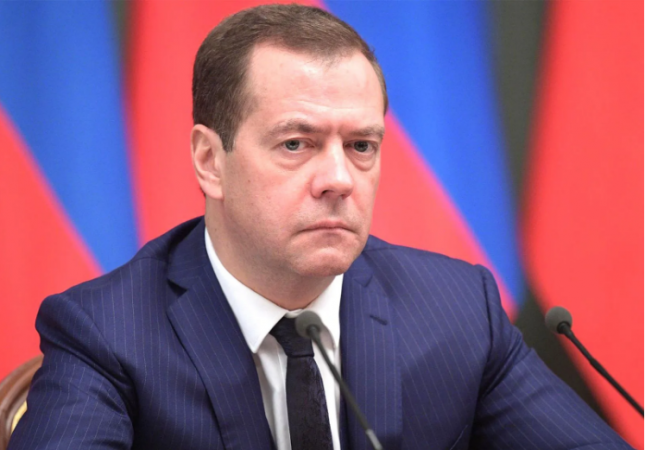
Moscow: At the end of August, Leonid Slutsky, the head of the Russian State Duma's international affairs committee, announced that Moscow would consider negotiating with Kiev if Kiev was ready for a "complete and unconditional de-nazification" of Ukraine. Will do
Deputy Chairman of the Russian Security Council Dmitry Medvedev has made a statement regarding the most recent comments made by Ukrainian President Volodymyr Zelensky about his reluctance to engage in talks with Moscow.
According to Medvedev's Monday Telegram post, a certain Zelensky said he would not engage in talks with those presenting the ultimatum.
"The current 'ultimatum' [Moscow] has a warm-up for the children before the future requirements. And Zelensky is aware of them. The Russian Security Council vice president stressed that they include the complete surrender of the Kyiv regime under Russian conditions .
Zelensky previously told CNN that Kyiv was not ready to meet for talks with Moscow because the latter, according to him, issues ultimatums.
This came after Leonid Slutsky, the head of the International Affairs Committee of the Russian lower house (State Duma), insisted late last month that Moscow would only consider resuming talks with Kyiv in the event of Ukraine's unconditional surrender. ready to consider.
Russia will take into account the negotiation process, he continued, if the Ukrainian side is prepared for "a qualitative reduction of its armed forces, and complete unconditional de-Nazification, that is, the liberation of Ukrainian territory from the Nazis", in addition to unconditional ones. to accept defeat.
Russian Foreign Minister Sergei Lavrov said in late July that Moscow was ready to resume comprehensive talks with Kiev and that the initiative was now with Kyiv, but the Ukrainian government has so far made it clear that it will begin not ready to. process.
Zelensky had previously received harsh criticism from Lavrov for his position regarding the resumption of talks between Kyiv and Moscow.
He believed that talks should take place directly between the parties, and only after Ukraine regained the lost territory by 23 February. Lavrov told reporters in May that no one needed to be convinced of the non-seriousness of the situation.
Blockade in Russian-Ukrainian talks
The first face-to-face meetings between the Russian and Ukrainian delegations took place in Belarus in late February, and it was then decided that the daily video link would be used to take the talks forward.
Another round of talks between the delegations took place in Istanbul in late March. Vladimir Medinsky, the head of the Russian delegation, announced that the Ukrainian side had given its written proposals for a possible peace treaty, which Moscow saw as a positive development.
The Kremlin applauded the action and announced that, as a gesture of goodwill and as part of the ongoing special campaign to demilitarize and de-nazify Ukraine, which was launched on 24 February, it had decided to demilitarize Kyiv. and decided to regroup the Russian troops going to Chernigov. region.
Moscow also demanded a meeting between Zelensky and Russian President Vladimir Putin, which, according to the Kremlin, should take place if the foreign ministers of Russia and Ukraine sign a peace deal.
But later, Lavrov claimed that Ukraine had begun to back down from its concessions and had staged a number of provocations in an attempt to stall the negotiation process.
Notably, he continued, the Ukrainian side unveiled its draft agreement with Russia, which Lavrov claimed had been agreed in Istanbul, along with proposals relating to Crimea.
The Russian Foreign Minister continued, noting that Kyiv had changed its position on the clauses of the draft agreement relating to military exercises by omitting the requirement to obtain Russia's approval.
FSB of Russia Prevents Terrorist Attacks in Crimea and the Kherson Region
Russia is accused by Ukraine of attacking the power grid in retaliation for the counteroffensive
The failure of Europe's 'patronising' attempts to confront China and Russia in Africa